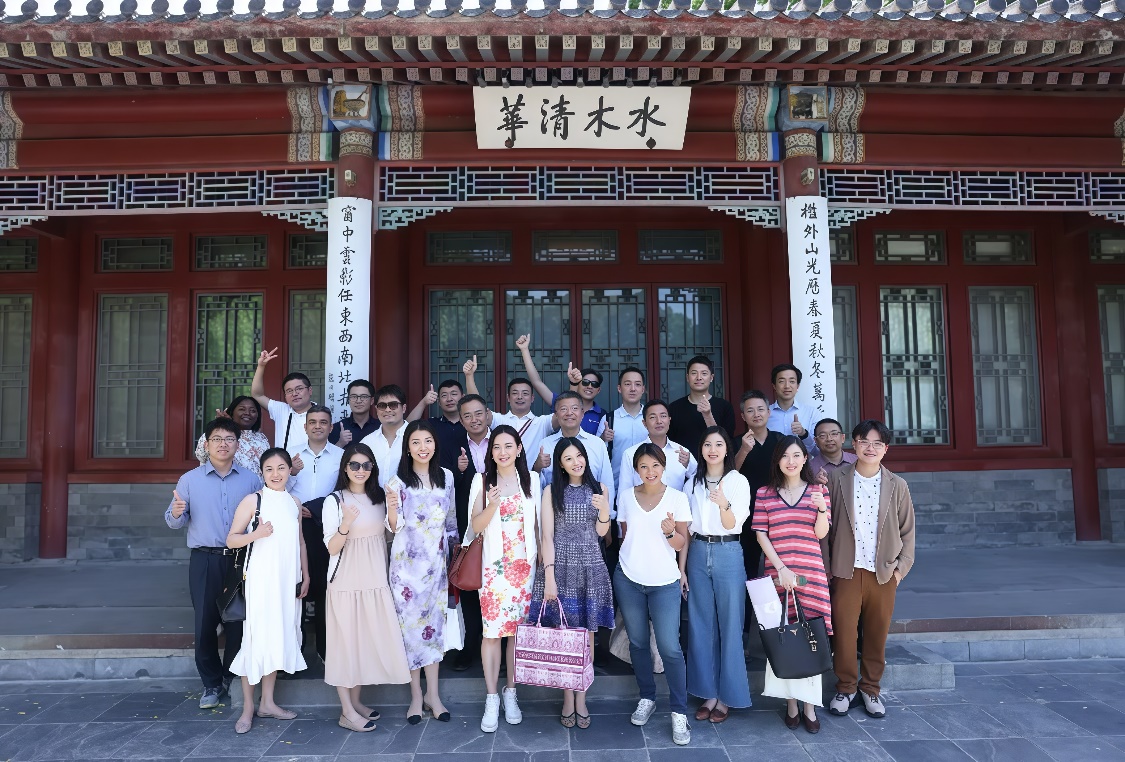From May 15 to 19, 2024, Tsinghua PBC Financial EMBA "Belt and Road" (BRI EMBA) program launched the Beijing module, and nearly 50 students from all over the world came to reunite at the school. On May 15th, students visited the Tsinghua main campus to explore the cutting-edge scientific research of Tsinghua University, feel the centennial plush elegance of Tsinghua University, and start a five-day learning journey with Tsinghua Experience Day. The Tsinghua Experience Day was co-organized by the Tsinghua University Education Foundation, and was attended by Yang Bin, Vice President of Tsinghua University, and Fu Xuan, Assistant Secretary-General of the Tsinghua University Education Foundation.
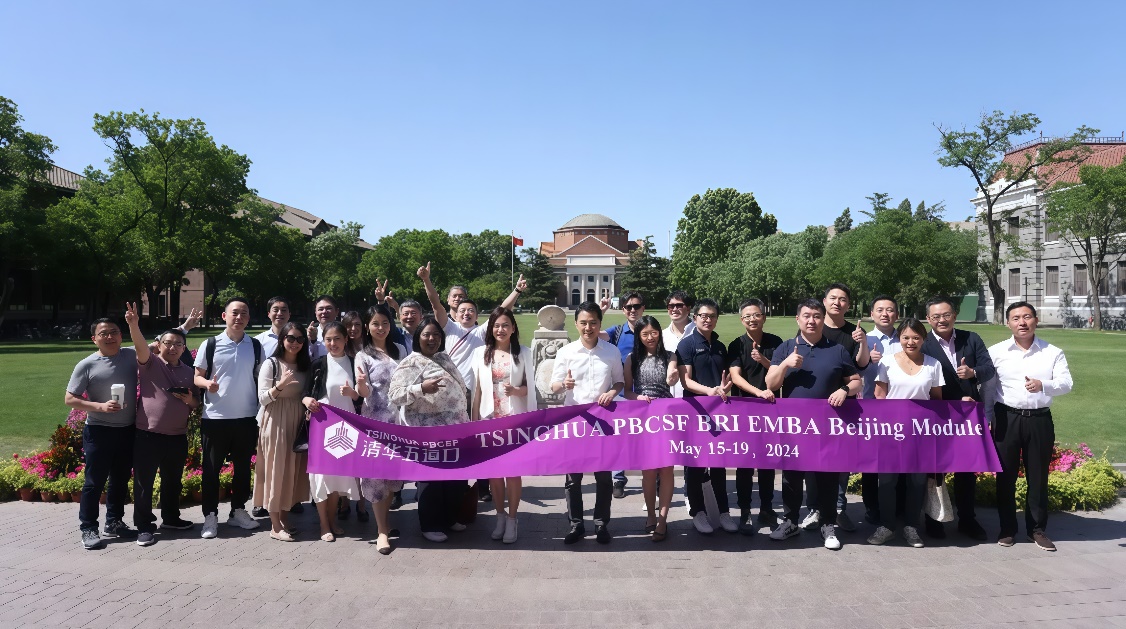

Vice President Yang Bin extended a warm welcome to the students. He said that Tsinghua University has always been rooted in the land of China, constantly pursuing excellence, bravely climbing the peak of science, and showing firm patriotic feelings and responsibility for the times. This spirit is also deeply imprinted in the hearts of every generation of Tsinghua people, and has become an important force to face the world and embrace the future. Yang Bin encouraged the students to uphold the school motto of "Self-reliance and Social Commitment" in the era of rapid change, adhere to the university spirit of "Actions speak louder than words", continue to embrace changes with an open mind, approach the world with firm steps, and contribute Tsinghua's wisdom and strength to the construction of a community with a shared future for mankind.
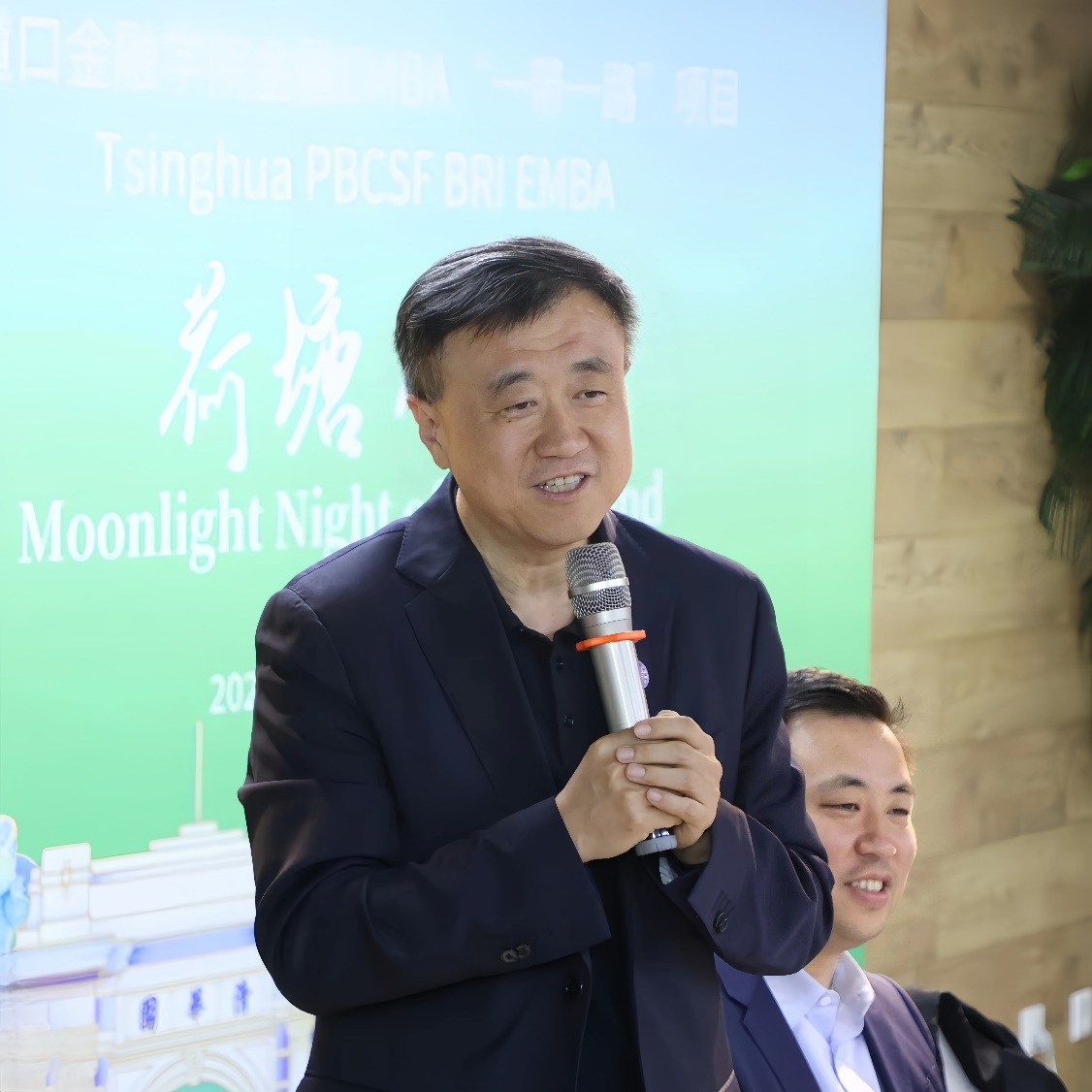
Artificial intelligence and biotechnology are areas that are attracting much attention today, and their integrated development will bring infinite possibilities for the future. The students came to the School of Life Sciences of Tsinghua University to exchange and study with Shi Songhai, academician of the Chinese Academy of Sciences and Dean of the School of Life Sciences of Tsinghua University, Wu Wei, Party Secretary of the School, Wang Yu, Deputy Dean of the School of Information Science and Technology and Director of the Department of Electronic Engineering of Tsinghua University, and Zhang Qilin, Associate Professor of the Department of Electronic Engineering.
Wu Wei delivered a speech on behalf of the School of Life Sciences, in which he extended a warm welcome to the students and guests who came from afar, and thanked them for their care and support for the development of life sciences, hoping to take this opportunity to promote mutual understanding, so as to better play the role of a bridge and bond between the school and peoples and alumni from all over the world.
Shi Songhai introduced the development process of the School of Life Sciences of Tsinghua University and the achievements and progress made by the School in talent training, discipline development and transformation of scientific and technological achievements. At the same time, as Dean of the IDG-McGovern Institute for Brain Science at Tsinghua University, Shi Songhai also introduced the latest research results of the institute in brain development, neural circuit function, neurodegenerative diseases, etc., and had a warm interaction with the students present on hot frontier issues.
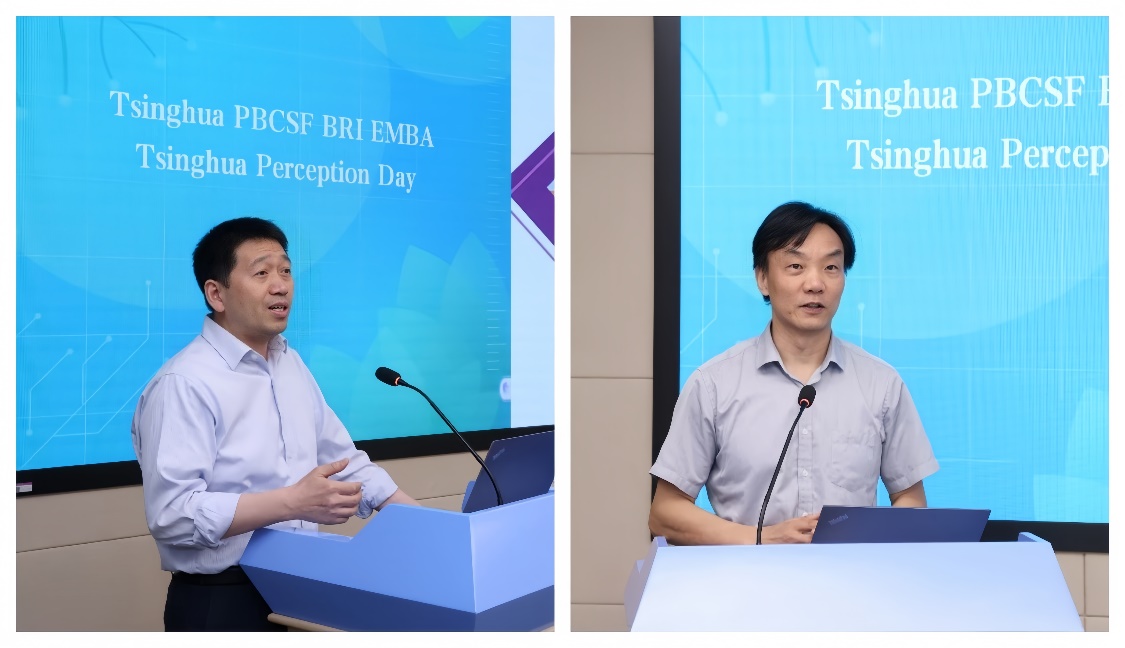
Wang Yu introduced the talent training system, the focus of discipline construction, the construction of the achievement transformation system of the School of Information Science and Technology, and the research progress of the Department of Electronic Engineering of Tsinghua University in the field of artificial intelligence. Focusing on the underlying technological breakthroughs and future development of artificial intelligence, Wang Yu also exchanged and discussed with the students.
Zhang Kelin brought cutting-edge sharing in the field of brain-computer interface technology. She said that the "brain" and "machine" in the brain-computer interface are not only the human brain and machine equipment in the narrow sense, but refer to the living nervous system and the virtual world respectively, so the brain-computer interface can be regarded as a channel that integrates human intelligence and artificial intelligence. Focusing on this vision of technological value, Zhang shared the development and evolution of brain-computer interface technology, and the technological breakthroughs involved in circuit systems, signal processing, materials science and other fields. Zhang also had an animated discussion with the students on the future application of the technology and the scientific ethics issues involved.
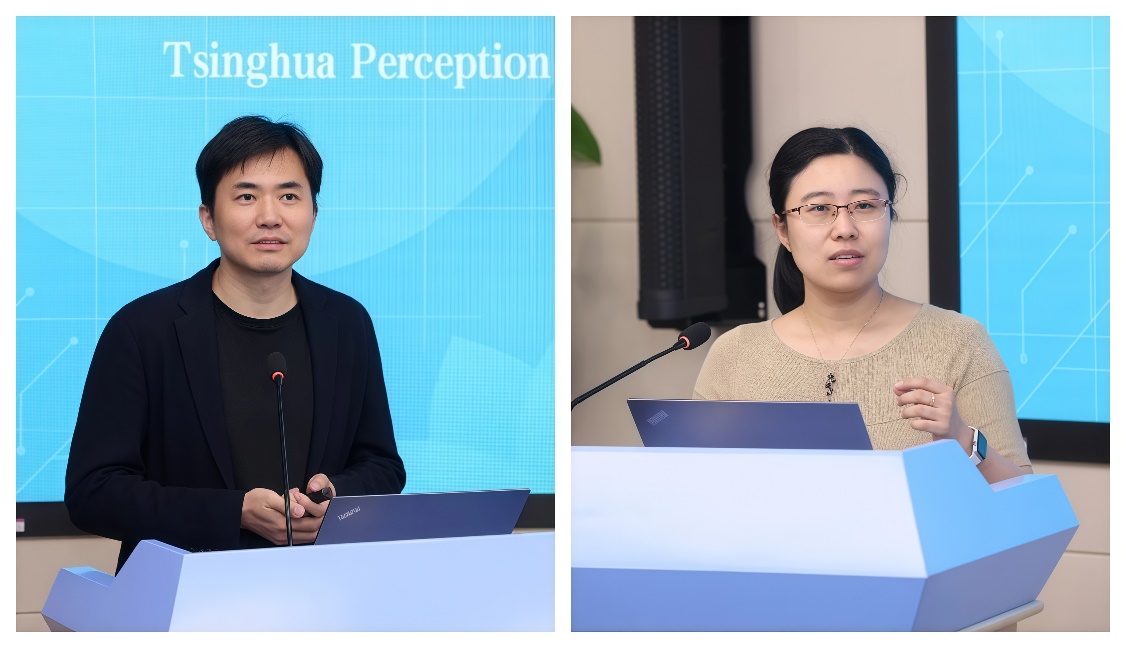
In the morning, the students also visited Baichuan Intelligence, founded by Tsinghua alumnus Wang Xiaochuan, who shared his insights into artificial intelligence. He pointed out that smart machines have gone beyond traditional tools to become multi-functional collaborative partners that provide companionship, knowledge, experience and services. Wang Xiaochuan emphasized that as an abstraction and generalization of the world, the compressibility of language is crucial for generalization and prediction. He summarized the three compression models of physics, language and life, and believed that language is being transformed into mathematical models, and there will be mathematical models of life in the future. He believes that the combination of large models and search technology will constitute a complete technology stack, solve the limitations of large models, and promote the wide application of intelligence in various fields of society.
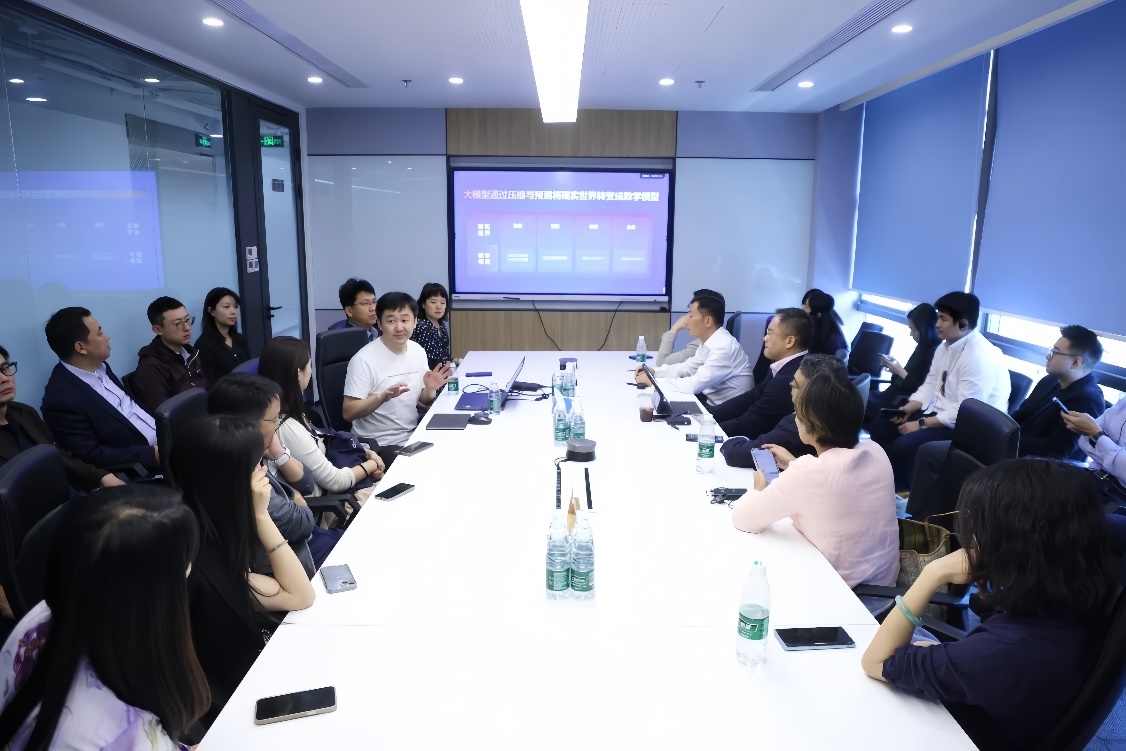
The visit coincided with the launch of OpenAI's new product GPT-4o and Google's annual I/O developer conference, where the students exchanged views with Wang Xiaochuan on topics such as the comparison of different products, the development of domestic large-scale model technology, and the emotion and thinking ability of artificial intelligence.
During the course modules, students also discussed the innovation of AI in the medical field with Huang Tianyin, Vice Provost of Tsinghua University, Founding Director and Chair Professor of Tsinghua School of Medicine. They listened to He Kebin, Academician of the Chinese Academy of Engineering and Professor of the School of Environment of Tsinghua University, giving a lecture on "A New Journey of Ecological Civilization Construction", and Chai Qimin, Director of the Strategic Planning Department of the National Climate Strategy Center, delivering a lecture on "China's Carbon Neutral Development Vision". Also among the lecturers was Zhang Ming, Deputy Director of the Institute of Finance of the Chinese Academy of Social Sciences, who gave a lecture on China's macroeconomics. The students also learned about public policy and leadership with Professor Cheng Wenhao and Associate Professor Chen Sicheng of the School of Public Policy and Management of Tsinghua University, and Fan Jida, Deputy Dean of the Graduate School at the Central Party School of the Chinese Communist Party.
